|
There's nothing quite like the feeling of struggling to read or write. It can be frustrating, overwhelming, and even a little bit scary for kids. But there's hope! I often hear the question, "What can I do to help my struggling readers and writers?" While there is no one-size-fits-all answer to this question, there are a few strategies and activities that can be used to help struggling students. Supporting your studentsIf you have a wide range of reading abilities in your class, it is important that you find ways to support all your students in developing and expanding their skills and knowledge. One of the best ways to do this is to create reading groups of similar abilities so that you can target the instruction to the specific needs of each group. Note: There can be many high achieving readers and writers in the class, but for this post, I will be focusing on those who struggle.) Ideas for struggling readersDo guided reading groups. This can be done with just a few students at a time, so everyone gets the individual attention they need. Choose books that are at the right level for each group, and then take turns reading aloud. As you read, stop and discuss vocabulary words or tricky concepts. This will help your students build their comprehension skills and confidence. Create some reading center activities that complement what is happening in the reading groups to help kids to remain engaged and motivated to keep trying. For example: 1. Provide a variety of books of a similar level for kids to choose to read quietly alone or with a partner. Make sure you have a variety of different genres of books for your struggling readers. This will help them find something that interests them and that they can read at their level. 2. Create word lists or anchor charts with high frequency words or sight words. The students can use the word lists to help them read the books. 3. Provide word games and activities that they can use to improve their decoding and fluency skills. Be sure to set realistic goals for struggling readers and help them celebrate their progress along the way. Ideas for struggling writersGetting started is one of the most difficult things for struggling writers. There may be a variety of different reasons for this, but it is a barrier that they need to get past in order to become good writers. Sometimes it is hard to come up with an idea, or maybe it is a fear of not knowing how to spell words, or maybe it is the motor skill of writing itself. These are only a few examples of things stopping the writing from happening. If we provide support to help with these roadblocks it is amazing what can happen with our struggling writers. Here are a few suggestions that might help our writers to get started. For those who have difficulty coming up with ideas1. Try using favorite interests, hobbies, events, or things that are important to them as starting points. Work on brainstorming ideas and organizing thoughts. 2. Encourage them to draw pictures or create a graphic organizer before actually writing. Provide a variety of different writing supports such as sentence starters, word banks, scaffolds, templates or prompts to support getting their ideas down on paper. 3.Encourage them to write for 20 minutes each day and help them brainstorm ideas for stories or poems. Give struggling writers plenty of opportunities to practice writing, whether it's through daily journaling or regular writing assignments. For those who worry about correct spelling1. Provide word banks or word lists and dictionaries. 2. Encourage them to use approximations to get their ideas down and then go back and check for the "dictionary spelling". (It is important to get the ideas out first and then edit.) 3. Have someone scribe for them at first and gradually get them to write on their own. Don't forget to provide plenty of praise and encouragement! For those who have motor issues1. Create an area with paper, pencils, and crayons. The students can practice writing their names, letters, and words. They can also draw pictures and tell stories. These activities will help the struggling writers to develop their skills. 2. Set up a dictation area where they can orally tell their stories and then have them transcribed. Set up a writing centerEstablish a writing center where struggling writers can go to work on their skills. Here they can work on different writing strategies. They might work on brainstorming ideas, organizing their thoughts, or using descriptive language. They might work on specific writing goals with your guidance. For example, you might have a student who is working on adding more detail to their writing. Give them some sentence starters that they can use, and then have them add as much detail as they can. Alternatively, you might have a student who is working on editing their work for grammar mistakes. Give them a list of common mistakes to look for, and then have them edit their own work or someone else's. Writing centers are flexible, so you can tailor them to meet the needs of your students. Help struggling writers set realistic goals and celebrate their progress along the way. Be sure to praise their efforts and provide specific feedback on their work. Assess how they are doingFinally, make sure you have a plan for monitoring the progress of your struggling readers and writers. This will help you know if they are making progress and where they need additional support. By taking these steps, you can help struggling readers and writers get the support they need to be successful in your class. Organizing reading and writing groups can seem daunting, but it's worth it! Your struggling students will benefit from the extra attention and support. And who knows - you might just see some strong readers and writers emerge. Grab a free copy of this set of templates and scaffolds for your young writers by signing up for my newsletter. Related Posts
0 Comments
Leave a Reply. |
About Me Charlene Sequeira
I am a wife, mother of 4, grandmother of 9, and a retired primary and music teacher. I love working with kids and continue to volunteer at school and teach ukulele. Categories
All
|

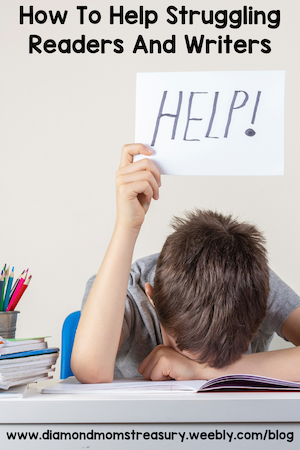
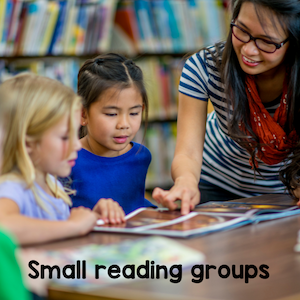


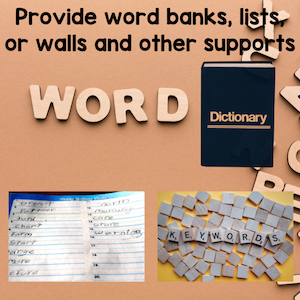
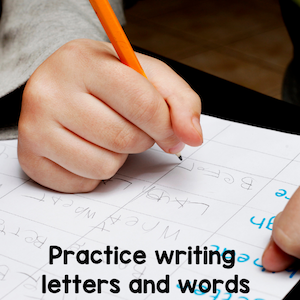
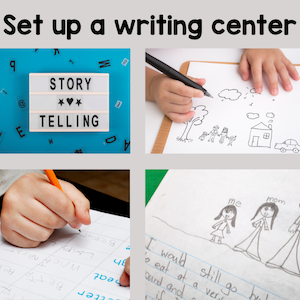
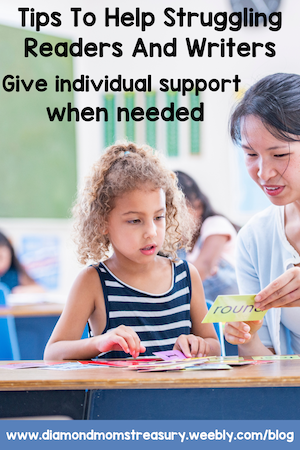
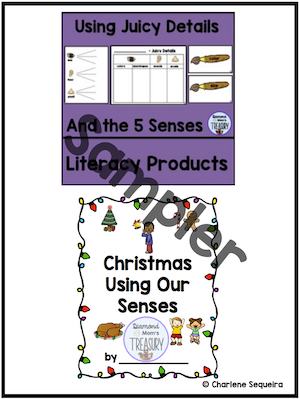







 RSS Feed
RSS Feed